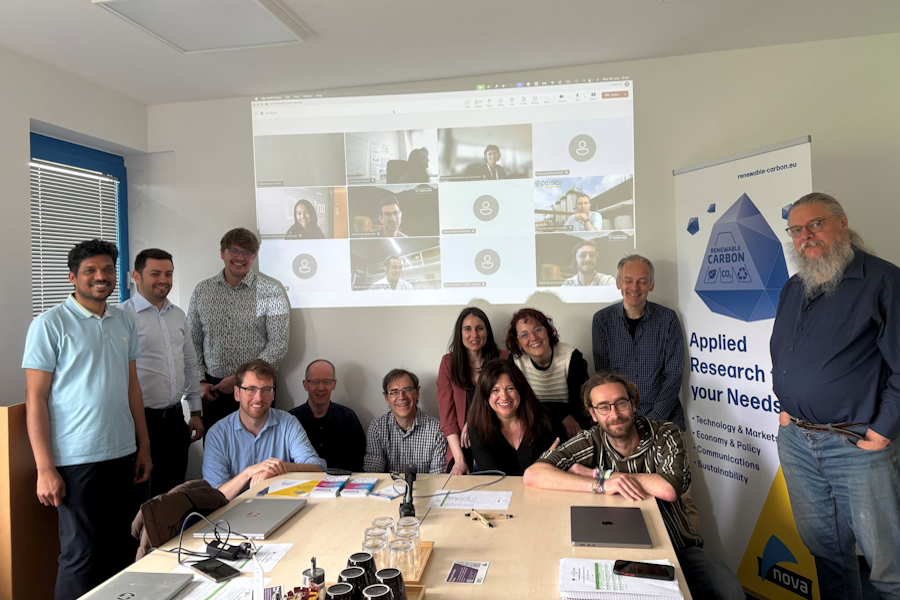
- 12/06/2025
- NEWS
MICROBIOCHP & CATCO2NVERS - Significant progress for ambitious projects
These are very intense weeks for our R&D team, full of noteworthy activities and updates, which have seen our team participate and, in some cases, organize meetings of the European research projects of which we are partners. Let's start with the meetings of the MICROBIOCHP and CATCO2NVERS projects.
MICROBIOCHP
On May 20th and 21st, the MICROBIOCHP consortium gathered in Wuppertal, Germany, at the premises of our project partner Wuppertal Institut fur Klima, Umwelt, Energie.
The MICROBIOCHP project (EU Horizon Europe) aims at the integration of a gasifier and a Solid Oxide Fuel Cell (SOFC) for the simultaneous production of heat and electricity to be implemented for residential buildings, presenting a cost-effective energy solution for apartment complexes. The technology is designed to deliver near-zero emissions of carbon monoxide (CO), organic gaseous compounds (OGCs), and particulate matter, while achieving a 55-65% reduction in NOx emissions compared to conventional biomass-based CHP systems.
HYSYTECH plays a key role in the process integration between the gasifier and the SOFC modules. Our contribution focuses on the development of a high temperature solid filter and a reactor for the removal of HCl and H2S.
Over the past six months, the pilot system has undergone intensive testing at the coordinator's site, showing promising results and identifying areas for further improvement. In the upcoming period, several system optimizations will be implemented to ensure the achievement of the project's ambitious objectives.
CATCO2NVERS
On May 27th and 28th, the CATCO2NVERS consortium gathered near Cologne, in Germany, at the premises of our project partner nova-Institut fur politische und okologische Innovation, for the project's 48-month meeting.
CATCO2NVERS (EU H2020) is an ambitious project that combines research areas such as electrochemistry, biotechnology and thermocatalysis and will contribute to reduce GHG emissions from the bio-based industries developing five innovative and integrated technologies, based on three catalytic methods (electrochemical, enzymatic, thermochemical). It will transform waste-CO2 and residual biomass from two bio-based industries into added-value chemicals: glyoxylic acid, lactic acid, furan dicarboxylic methyl ester (FDME) and cyclic carbonated fatty acid methyl esters (CCFAMEs). These products will be validated in cosmetics formulations, as building blocks for polymers and green solvents.
The meeting showcased promising advancements across all five technological pathways, highlighting significant progress toward the project's goal of CO2 valorization. Notably, the prototype system delivered and installed by HYSYTECH at PERSEO's facilities in Valencia for FDME and CCFAME synthesis has successfully started operations. Initial trials at TRL 5 have yielded encouraging results, marking a key milestone in the project's development.


